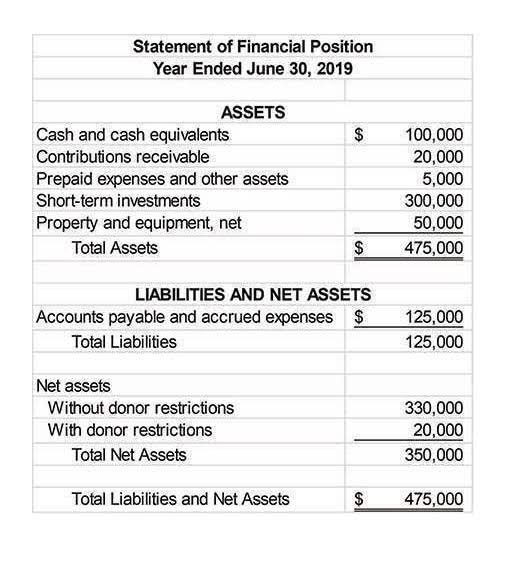
The unexpired insurance will reduce is insurance expense a debit or credit from balance sheet and increase the insurance expense on income statement. The company requires to record unexpired insurance when payment is transferred to the insurance company. Company records unexpired insurance and decreases cash on balance sheet. Insurance is the expense that company purchases from the insurance provider in exchange for the insurance service.

How does insurance expense impact the income statement?
Insurance expense will most often be considered an Accounting Security operating expense, and for many companies, it is tax-deductible. I am sure if the Accountant wants to change anything, adjusting journals can be done. But in the meantime, these entries will keep the books looking good.
The Importance of Correct Insurance Accounting
- In addition to adding $1,000 to your cash bucket, we would also have to increase your “bank loan” bucket by $1,000.
- The accounting concepts of debit and credit run counter to the banking terminology.
- A fixed asset is a tangible/physical item owned by a business that is relatively expensive and has a permanent or long life—more than one year.
- In accounting, prepaid expenses are initially recorded as current assets because they represent future economic benefits.
- In finance and accounting, a premium is any additional cost charged on top of an asset’s usual cost.
- The $100 balance in the Taxes Expense account will appear on the income statement at the end of the month.
- Therefore, as per the modern rules of accounting for assets an increase in assets will be debited.
Suppose, you rent a local shop that sells apples & you make a monthly payment towards the shop’s electricity bill (by the bank). Consequently, this payment would be reflected on the income statement. In accounting terms, expenses tend to increase productivity while decreasing owner’s equity. Thus, an increase in expenses should be debited in the books of accounts. Here, only the amount for 3 months is prepaid and it is recorded on the asset side of the balance sheet.
- Any remaining balance in the Supplies account is what you have left to use in the future; it continues to be an asset since it is still available.
- The answer is when a risk such as an unforeseen illness resulting in critical illness, disability or death becomes a reality.
- Prepaid expenses are critical in accounting as they represent payments made for goods or services to be received in the future.
- This journal entry for a payment of this nature is referred to as prepaid insurance journal entry.
Mastering Prepaid Expenses: Essential Techniques for Accurate Recording and Amortization
Assume that a company’s annual premium on its liability insurance policy is $2,400 and is due on the first day of each year. When the $2,400 payment is made on January 1, the company debits Prepaid Insurance and credits Cash. It also sets up automatic monthly adjusting entries to debit Insurance Expense for $200 and to credit Prepaid Insurance for $200 on the last day of each month. By amortizing prepaid expenses, businesses can avoid overstating their assets and ensure that expenses are matched with the periods in which they help generate revenue. This practice not only enhances the accuracy of financial statements but also provides a clearer picture of the companys ongoing operational costs.

Is insurance an asset or liability in accounting?
By doing so, businesses can achieve a more precise matching of expenses and revenues, which is a fundamental principle of accrual accounting. The initial recording of prepaid expenses is a critical step in ensuring accurate financial reporting. By treating these payments as assets, businesses can avoid prematurely recognizing expenses and maintain a clearer picture of their financial position. This practice supports better decision-making and financial planning.
- An accountant would say that we are crediting the bank account $600 and debiting the furniture account $600.
- This translates to five months of insurance that has not yet expired times $400 per month or five-sixths of the $2,400 insurance premium cost.
- Understanding how insurance is treated in the trial balance is essential for maintaining accurate financial records.
- The insurance provider charges an annual fee, called a premium, which will cover the business for 12 months.
- This method provides a more accurate representation of financial performance and ensures that the financial statements reflect the true cost of operations during each accounting period.

When the company pays its premiums, the bookkeeper credits the cash account and debits the insurance payable account. This entry brings the insurance payable account back to zero, therefore settling the debt. The accounting concepts of debit and credit run counter to the banking terminology. These payments are assets = liabilities + equity initially recorded as assets on the balance sheet because they represent future economic benefits. As the benefits of these prepaid expenses are realized over time, they are gradually expensed on the income statement.
Prepaid Insurance Journal Entry ACCA Questions

A fixed asset is a tangible/physical item owned by a business that is relatively expensive and has a permanent or long life—more than one year. Its initial value, and the amount in the journal entry for the purchase, is what it costs. After 12 full months, at the end of May in the year after the business license was initially purchased, all of the prepaid taxes will have expired. If the company would like to continue to do business in the upcoming year, it will have to prepay again.
